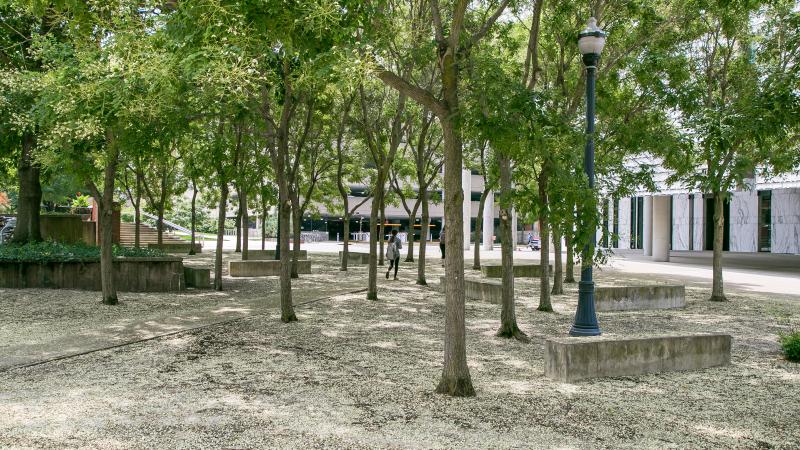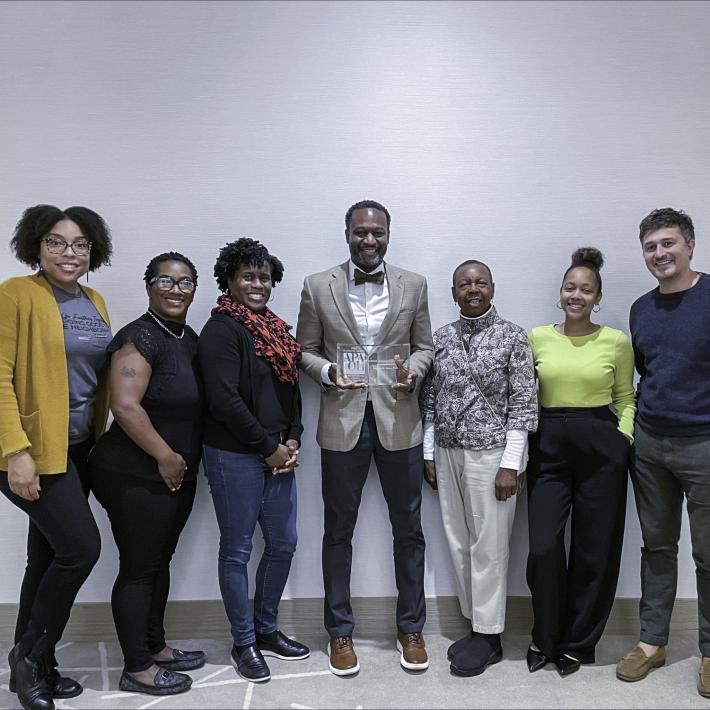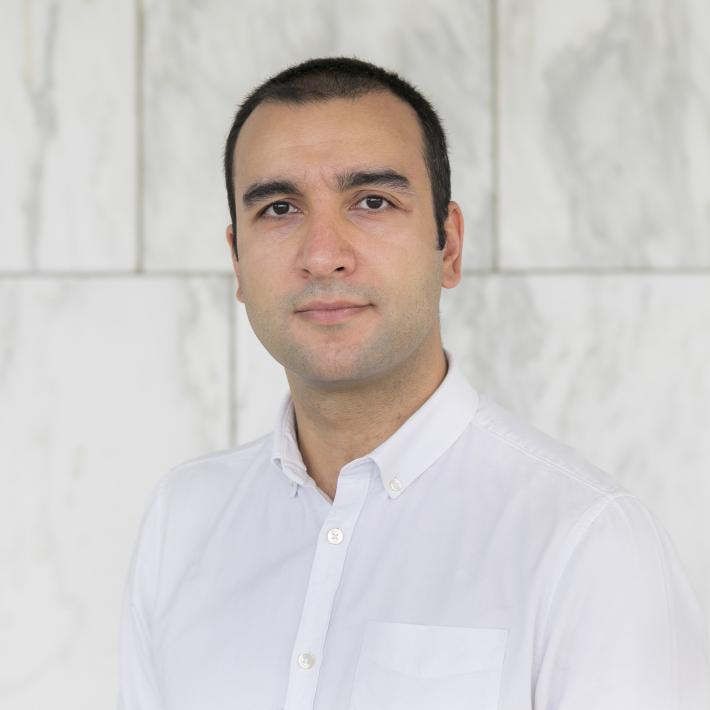PhD in City and Regional Planning
The Doctor of Philosophy in City and Regional Planning Program provides advanced study of cities and regions and systems and processes that produce places and sustain communities.

PhD in City and Regional Planning
Program Overview
The doctoral program in City and Regional Planning program combines intensive seminars with individualized programs of study. Only a small number of PhD students are accepted each year, most of whom have a master's degree in city and regional planning or a related discipline (like geography or policy). City and Regional Planning makes four Knowlton PhD Awards to incoming doctoral students every year.
The PhD program generally counts 20 students in residence working closely with faculty on the delivery of the BSCRP and MCRP programs as well as on research projects. The program trains doctoral students to conduct independent and original planning research and pedagogical approaches to teaching planning.
PhD students participate in the CRP Colloquium which meets weekly during the academic year and provides a forum for students to present research, learn about faculty research, meet alumni, listen to the work of both planning professors from other departments and Ohio State faculty in cognate disciplines, and discuss publication strategies and contemporary topics in academia. City and Regional Planning also hosts several well-known planning professors each year as part of the Knowlton School’s Baumer Lecture Series.
The City and Regional Planning section is very active in planning research and publication. The section is home to the Journal of Planning Literature and the faculty includes current editors of the Journal of Urban Affairs and Regional Studies.
During their course of study, PhD students develop two areas of specialization, one from the program designated topics and the other designed and developed independently in consultation with their doctoral advisor tailored to their area of study.
Graduates of Knowlton's PhD program go on to careers in academia or research organizations in government, industry, and nonprofit organizations.
Doctoral students begin the program with coursework on planning theory, analysis, and in their core specializations. Once coursework is complete, students take the candidacy examination. The core areas of specialization in the program are economic development, community development and housing, transportation and mobility, environmental planning and sustainability, and urban design and physical planning.
Learn more about our doctoral students' background and research areas.
PhD Funding and Support
City and Regional Planning makes four Knowlton PhD Awards to incoming doctoral students every year. The Knowlton PhD Awards include a four-year commitment of financial support (a stipend and a tuition waiver) through a combination of fellowships and graduate research and teaching assistantships. Information on additional funding opportunities for current and prospective PhD students is available here.
The program also provides support for conference travel and assists students as they pursue university and external travel fellowships and exchange opportunities.
CTA Links: Request Info / Visit / Apply (PhD CRP)
Curriculum
Because of the nature of independent research, the PhD program curriculum is very flexible. The curriculum allows students to develop a research program through their academic interests and in concert with their advisor. Doctoral students must take a minimum of 50 credits in specific areas of focus.
| Category | Course | Credits |
|---|---|---|
| Fundamentals Core | CRPLAN 7000 Contemporary Planning Research, 3 cr CRPLAN 7300 Planning Dissertations and Theses from Start to Finish, 3 cr |
6 |
| Planning Theory Core | CRPLAN 7100 Advanced Planning Theory | 3 |
| Teaching Practicum | CRPLAN 8200 Planning Teaching Practicum | 1 |
| Major Field of Specialization | Field within City and Regional Planning, courses agreed upon with advisor | 15 |
| Minor Field of Specialization | Field within City and Regional Planning, courses agreed upon with advisor | 9 |
| Electives | Electives may cover methods or specialization fields | 16 |
| Total Credit Hours Required to Graduate | 50 |
Learn more about Knowlton Courses & Curriculum
Areas of Focus
Students must complete course work in two fields of specialization for at least 24 credit hours (a minimum of 15 credit hours in the Major Field of Specialization, and 9 credit hours in the Minor). The Major Field of Specialization must be centered in City and Regional Planning, and be selected from those listed below. The Minor field of specialization may be within or outside of City and Regional Planning. Students may specialize on topics from a variety of disciplines such as Geography, Public Policy, Civil Engineering, etc. Some examples of minor fields include: econometrics, cultural anthropology, statistics, public health planning, etc.
The student and the advisor decide together on the courses that support their doctoral study. The courses may be taken within the CRP program or from other departments consistent with student interest and field requirements. Independent study courses may also qualify for the requirements. The courses are expected to cover the theory and evolution of the field, current debates, and analysis methods.
Economic Development
Why do some cities and regions grow while others decline? Is all growth good? Under what conditions does economic development support sustainable and equitable growth? How does the built environment and the systems that operate within it (e.g., transportation, energy, land use) affect regional economic development?
The answers to these questions are crucial because economic development priorities and practices frame much of what is defined as profitable, desirable, and possible across all the domains of urban and regional planning. For example, whether to make infrastructure investments in high-speed rail or where to locate new affordable housing or a linear park.
Our approach at Ohio State is multidisciplinary by design, as the challenges that cities and regions face are complex ones that do not respect disciplinary boundaries or benefit from only one approach. City and regional planning is uniquely situated to tackle these complex, multidisciplinary challenges by integrating research from both planning and its cognate disciplines including economics, business administration and management, geography, public policy, sociology, and political science. With a PhD concentration in economic development, your research will contribute to the discovery of long-term development strategies for communities and regions that balance economic prosperity, environmental sustainability, social equity, and resilience to external shocks.
Community Development and Housing
Our cities and towns are comprised of a network of neighborhoods and districts that provide amenities and resources such as housing, education, places of worship, access to food and nourishment, and connect communities of individually socially for improved quality of life. By understanding the strengths and strains of this ‘togetherness’, planners work to guide community or neighborhood development in ways that are inclusive, sustainable, and equitable. The specialization in community development and housing has a long tradition in city and regional planning. Community development research can focus on urban, suburban, or rural environments and includes issues such as leadership development, social capital formation, community economic development, infrastructure, or modification to the built environment or efforts to support community improvement in education, health, or employment.
Historically, many social issues in community development have had a housing dimension, including problems associated with racial segregation, slum development, poverty, and unemployment. Housing policy has traditionally been central to community development practice and is one of the most influential policy interventions to impact neighborhoods. Housing policies such as zoning laws, building codes, rent control, urban renewal, public housing, and fair housing regulations all impact the built and social environment. Housing includes the delivery of land, shelter, community facilities, and physical infrastructure. Research might deal with such topics as increasing the supply of affordable housing, expanding homeownership among low-income groups, understanding the effectiveness of various incentives and constraints to encourage the development of safe and affordable housing, the relationship between socio‐demographic characteristics of people and their housing and neighborhood choices, or the effect of housing and neighborhoods characteristics on quality of life.
Urban Design and Physical Planning
The urban design and physical planning specialization aims to plan and design places that are environmentally, socially, and culturally sustainable, and are conducive to accommodate new people, new uses, and new buildings. It also includes the exploration of how urban sprawl and growth management can and do inform urban design and contribute to more resilient urban environments. This field covers scales from neighborhoods to metropolitan areas and addresses interrelationships between the physical environment, the built environment, and the social, economic, and political institutions and processes that shape urban areas. Students will learn methods, theory including environmental programming and research, geographic information systems, health impact assessments, social/cultural factors in environmental design, and application of information to the resolution of environmental design problems.
Environmental Planning and Sustainability
The Environmental Planning & Sustainability specialty allows students to pursue planning questions relating to the conservation, development, and restoration of socio-ecological systems, particularly (but not exclusively) in cities and regions. From the creation of green infrastructure to the preparation for natural hazards, individuals and communities interact with their environments in ways that include planning. Research in this area ranges from questions of the incorporation of sustainable development principles in plans and policies, the resilience of built and natural environments and their connections, the social, economic and environmental impacts of various activities, and questions related to the processes that produce plans for socio-ecological systems and their health consequences. It might also address energy conservation, generation, and infrastructure.
Transportation and Mobility
Transportation or movement across space is an integral part of the planning process. As new transportation technologies emerge in the 21st century, there is potential for significant changes in mode choice, travel behavior, goods movement, land use patterns, and infrastructure. The transportation specialization in the PhD program addresses these concerns through a variety of possible topics, ranging from measuring and providing access and equity, sustainable mobility, new mobility technologies and cities, understanding and projecting travel behavior, transportation policy making, mobility management, and system resilience. Our faculty has expertise studying mobility at diverse geographical scales (local, regional, and international) and with various travel modes (active modes, rail, air, transit, and autos).
Explore Planning
Tonni Oberly and Jason Reece Research Featured by APA
The research by the alumna and associate professor of planning was featured on the planning association’s blog.
Zhenhua Chen Publishes Research Articles
In 2020, Assistant Professor of City and Regional Planning Zhenhua Chen published collaborative articles on…
Contact PChair, CRP
Yasuyuki Motoyama
Associate Professor of City and Regional Planning,
PhD Program Director
motoyama.1@osu.edu





